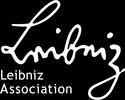Exploring the Air Pollution Crisis in Megacities: The Case of Metro Manila, Philippines
Developing economy and growing wealth made the megacity of Metro Manila one of the most densely populated megacities in the world. Consequently, the city’s transportation infrastructure faces the actual collapse as the number of registered motor vehicles increased to 2.3 million in 2015 and is still growing. This rapid increase of vehicular fleet, coupled with outdated environmental legislations lead to immense emission of combustion pollutants, which seem to inveterate in this ramifying city with no hard actions made to solve this problem. This resulted in growing social dissatisfaction of degraded air quality, increasing incidences of lung cancer, and even premature deaths. Some attempts were made to characterize air pollution in this developing megacity, however, it soon became clear that the mitigation of the problem is far beyond the research field of environmental science alone. Evidential results of the magnitude of the pollution alone cannot solve the air quality problem, requiring the constitution of an interdisciplinary team of researchers from environmental, social, and health sciences to cope with this rising crisis.
As a first step, possible pathways to progress towards sustainable development of urban regions were discussed in a framework of international expert workshop “Exploring the Air Pollution Crisis in Megacities: The Case of the Metro Manila, Philippines”. Here, the expertise from different disciplines was brought together and the holistic approach in addressing air pollution crisis in a megacity like Metro Manila was explored.
the Project team (JPG)
Participating Institutes
Leibniz Institute of Ecological Urban and Regional Development (IÖR)
Leibniz Research Institute for Environmental Medicine (IUF)
Leibniz Institute for Tropospheric Research (TROPOS)
Leibniz Center for Tropical Marine Research (ZMT)
Publications
L. Tõnisson, Y. Kunz, S. Kecorius, L. Madueño, D. M. Casanova, Q. Zhao, T. Schikowski, A.-K. Hornidge, A. Wiedensohler, A. Macke. 2020. From Transfer to Knowledge Co-Production: A Transdisciplinary Research Approach to Reduce Black Carbon Emissions in Metro Manila, Philippines. Sustainability 12(23).
Dawn Alas, H., T. Müller, W. Birmili, S. Kecorius, M. O. Cambaliza, J. B. B. Simpas, M. Cayetano, K. Weinhold, E. Vallar, M. C. Galvez and A. Wiedensohler. 2018. Spatial Characterization of Black Carbon Mass Concentration in the Atmosphere of a Southeast Asian Megacity: An Air Quality Case Study for Metro Manila, Philippines. Aerosol and Air Quality Research 18, 2301–2317.
Kecorius, S., E. G. Tamayo, M. C. Galvez, L. Madueño, G. Betito, G. M. Cayetano, E. Vallar and A. Wiedensohler. 2018. Activity Pattern of School/University Tenants and their Family Members in Metro Manila – Philippines. Aerosol and Air Quality Research 18, 2412–2419.
Kecorius, S., L. Madueño, E. Vallar, H. Alas, G. Betito, W. Birmili, M. O. Cambaliza, G. Catipay, M. G. Cayetano, M. C. Galvez, G. Lorenzo, T. Müller, J. B. Simpas, E. G. Tamayo and A. Wiedensohler. 2017. Aerosol particle mixing state, soot number size distributions, and emission factors in a polluted urban environment: case study of Metro Manila. Philippines Atmospheric Environment 170, 169-183.
Contact
Prof. Dr. Andreas Macke (TROPOS)
Prof. Dr. Alfred Wiedensohler (TROPOS)
Prof. Dr. Anna-Katharina Hornidge (ZMT)
Dr. rer. nat. Gérard Hutter (IÖR)
Project term
11/2016 - 06/2017
